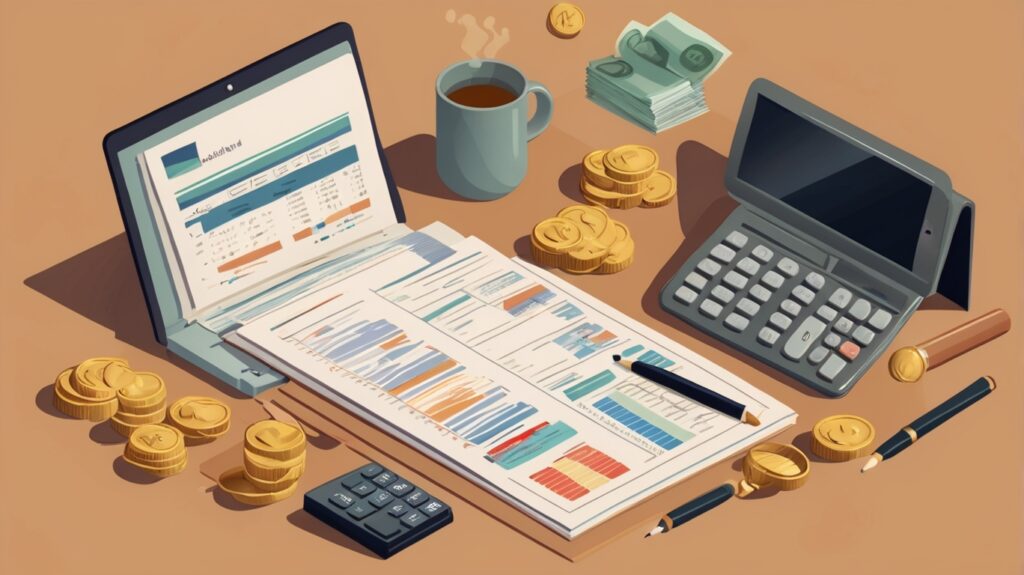Introduction Budgeting is more than just tracking expenses or balancing a checkbook. It’s a powerful financial strategy that allows for proactive planning, effective resource allocation, and long-term stability. In this comprehensive guide, we will explore the importance of budgeting from three key perspectives—personal, business, and governmental—and delve into why this foundational financial practice is crucial for sustainable economic health at every level of society.

1. Why Budgeting Is Important for Individuals
Helps Control Spending
A personal budget acts as a financial map. It provides a detailed picture of where your money comes from and where it goes. By categorizing your spending into essential and non-essential expenses, you gain visibility over your financial behavior. This control empowers individuals to eliminate impulsive purchases and redirect funds toward meaningful goals. Without this visibility, it’s easy to fall into the trap of lifestyle inflation—spending more as you earn more.
Makes Saving Easier
A structured budget includes specific allocations for savings, whether for emergencies, retirement, or future investments. By treating savings as a fixed monthly 'expense,’ you automate financial discipline. Over time, even small contributions grow substantially thanks to compound interest. Budgeting transforms saving from a sporadic act into a consistent habit.
Prevents Debt Accumulation
Debt often arises from unplanned expenditures. Without a clear budget, you may rely on credit to cover shortfalls, leading to high-interest liabilities. Budgeting helps you prioritize essential spending, avoid overreliance on credit, and allocate funds toward debt repayment. It also allows for the creation of an emergency fund, reducing the need to borrow in times of crisis.
Builds Financial Security
Financial security means having the confidence that you can handle life’s uncertainties. A well-maintained budget provides a cushion against economic shocks such as job loss, medical emergencies, or major repairs. It reduces anxiety and enables proactive financial planning, such as investing in insurance or creating a will.
Example of a Simple Personal Budget
A common approach is the 50/30/20 rule: 50% of income for necessities (rent, groceries, bills), 30% for discretionary spending (entertainment, dining), and 20% for savings and debt repayment. More advanced budgeting may involve zero-based budgeting, where every dollar is assigned a purpose.

2. Why Budgeting Is Important for Businesses
Allows for Better Planning of Investments and Costs
Business budgets serve as financial blueprints. They outline expected income, costs, and profit margins. With this information, businesses can assess the feasibility of new projects, allocate capital efficiently, and plan for sustainable growth. Strategic budgeting supports long-term investments in technology, talent, and infrastructure.
Reduces Risk of Cash Flow Problems
Even profitable businesses can fail due to poor cash flow management. A budget forecasts incoming and outgoing cash, enabling businesses to anticipate shortages and arrange credit or cut expenses in time. It ensures that essential obligations like payroll, supplier payments, and taxes are always met.
Aids in Reporting and Decision-Making
Budgets provide benchmarks for evaluating performance. Variance analysis—comparing actual results to the budget—identifies areas that need attention. This data-driven insight enhances strategic decision-making and accountability across departments.
Supports Strategic Goals
A well-integrated budget aligns spending with business priorities. Whether the goal is market expansion, product innovation, or cost reduction, budgeting helps allocate resources effectively. It transforms abstract goals into actionable financial plans.
Example: What Happens When a Business Has No Budget
Lack of budgeting leads to chaotic operations, unplanned expenses, and inefficient use of capital. Businesses may miss growth opportunities or run into solvency issues. For instance, a startup without a budget may burn through investor funds without a clear path to profitability.

3. Why Budgeting Is Important for Governments
Plans Public Spending on Essential Services
Government budgets allocate resources to sectors like healthcare, education, transportation, and social services. These allocations determine the quality of life for citizens. A well-planned budget ensures that critical public services receive sufficient funding and operate efficiently.
Maintains Economic Stability
Fiscal policy, implemented through government budgets, is a key tool for managing macroeconomic stability. During recessions, governments may increase spending to stimulate demand; during booms, they may cut back to avoid inflation. A budget provides the framework for these counter-cyclical measures.
Controls Public Debt and Deficit
Responsible budgeting includes managing national debt levels. While some borrowing is necessary for growth, excessive deficits can lead to high interest payments and loss of investor confidence. Budgeting allows governments to monitor borrowing and implement repayment strategies, ensuring long-term sustainability.
Builds Citizen Trust
Transparency in budgeting fosters democratic accountability. When citizens can see how taxes are spent, it promotes trust and civic engagement. Participatory budgeting—where citizens help decide local spending priorities—is increasingly being adopted worldwide as a governance best practice.
Example: National Budgets and Taxation
National budgets are policy instruments. For instance, tax cuts or increased spending on infrastructure can stimulate economic activity. Conversely, austerity measures during times of crisis reflect budget constraints. In countries like India, the budget presentation on February 1st is a significant political and economic event.

4. Consequences of Not Budgeting
Individuals
Without a budget, individuals may overspend, live paycheck to paycheck, and fail to prepare for emergencies. Over time, this can result in poor credit scores, chronic debt, and inability to achieve financial goals such as buying a home or retiring comfortably.
Businesses
Companies that operate without a budget risk financial mismanagement. They may face liquidity crises, miss key investment opportunities, or fail to control operational costs. In the worst cases, this can lead to insolvency and bankruptcy.
Governments
Government mismanagement of budgets can lead to national debt crises, inflation, or a loss of public services. Countries without robust budget frameworks may face downgraded credit ratings, leading to higher borrowing costs and international scrutiny.
5. Tips to Start Budgeting Today
Choose a Simple Method
Start with a basic model like the 50/30/20 rule or zero-based budgeting. The goal is to make budgeting a habit, not a chore. Once you’re comfortable, you can explore more advanced tools and techniques.
Set Clear Priorities
Understand your financial goals—short-term (e.g., vacation), medium-term (e.g., buying a car), and long-term (e.g., retirement). Allocate funds according to these priorities.
Use Digital Tools
Modern budgeting apps offer features like real-time expense tracking, goal setting, and automated categorization. Tools like YNAB, Mint, and PocketGuard can simplify the process and provide insights through visual dashboards.
Review and Adjust Regularly
Budgeting is not static. Life changes, and so should your budget. Conduct monthly reviews to track progress, make necessary adjustments, and stay aligned with your goals. Revisit major financial goals quarterly.
FAQ
Why is budgeting important in everyday life?
It provides clarity and control over your financial decisions, helping you avoid wasteful spending and focus on meaningful financial goals.
What are the benefits of having a personal budget?
Benefits include improved financial discipline, reduced anxiety, enhanced ability to save and invest, and better preparedness for emergencies.
Can budgeting really help save money?
Absolutely. Budgeting increases awareness of spending habits, enabling you to identify unnecessary expenses and redirect funds toward savings or investment.
Conclusion Budgeting is not merely a financial exercise—it is a foundation for responsible living, sustainable business management, and effective governance. For individuals, it offers control and peace of mind. For businesses, it enhances efficiency and competitiveness. For governments, it ensures accountability and economic health. No matter your role in the economy, adopting a disciplined approach to budgeting is one of the most impactful financial decisions you can make. Begin today—because the future favors the financially prepared.
Next Reads – Explore More Budgeting Topics
If you found this article helpful, you may also enjoy these in-depth guides:
Why Budget Is Presented on 1st February
Why Budget Airlines Are Suddenly Failing
Why Budget Cuts Happen and Their Impact
Why Budget Line Is a Straight Line
Why Budget Line Is Downward Sloping


1 komentarz do “Why Budgeting Is Important: Personal, Business & Government Perspective”